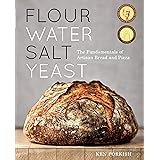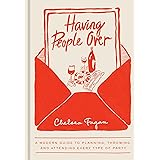Estimates suggest that global food systems are responsible for approximately one-third of all greenhouse gas emissions, a staggering figure that underscores the urgent need for sustainable practices. The ongoing discussion about how our dietary choices impact the planet often centers on veganism and its environmental benefits. As highlighted in the insightful video above, the relationship between what we eat and the health of our environment is far more intricate than often portrayed, involving a dynamic interplay of science, business, and nature.
The debate extends beyond simple binaries, prompting a closer examination of both plant-based lifestyles and evolving agricultural methods. Many individuals are currently grappling with the question: is veganism good for the environment? This discussion explores diverse perspectives, from the deeply personal reasons for adopting a vegan diet to the often-overlooked environmental advantages of modern regenerative farming practices.
Unpacking Veganism: Beyond the Plate
Veganism, at its core, represents a dietary and lifestyle choice that excludes all animal products. While often lauded for its potential positive impact on the environment, the motivations behind this decision are deeply varied. Some individuals, like Dave Chawner in the video, adopt veganism for philosophical reasons, delving into specific ethical frameworks or simply finding it a manageable adjustment to their daily lives.
Conversely, a significant proportion of people turn to a plant-based diet primarily due to environmental concerns, aiming to reduce their carbon footprint and promote more sustainable food systems. However, the narrative around veganism and the environment becomes more complex when considering the burgeoning industry of highly processed vegan foods. As Jamie Blackett points out, global food conglomerates often find substantial profit margins in creating these products from vegetable oils and soy, leading to a powerful, and perhaps unexpected, alliance between corporate interests and certain anti-capitalist movements.
It is essential to distinguish between a diet rich in whole, unprocessed plant foods and one heavily reliant on manufactured alternatives. The environmental impact of producing these processed items, including sourcing ingredients like soy and palm oil, often involves extensive land use and transportation, which can diminish the perceived ecological advantages of a strictly vegan diet. Therefore, consumers are encouraged to consider the origins and processing of their food, irrespective of whether it is plant-based or animal-derived.
The Green Debate: Veganism vs. Regenerative Agriculture
While many associate environmental stewardship solely with plant-based diets, the video introduces a compelling counter-narrative from the perspective of regenerative agriculture. Jamie Blackett, a dairy and arable farmer, passionately argues that cows are not inherently problematic for the environment; rather, they can be an integral part of the solution. This progressive approach focuses on farming methods that actively regenerate soil health, enhance biodiversity, and sequester carbon.
Regenerative farming techniques, like mob grazing described by Jamie, mimic natural ecosystems where large herds of animals move across pastures. In this system, approximately 300 cattle graze small 10-acre paddocks for a mere 12 hours before moving on, returning to the same area only after three weeks. This specific rotation allows grass to recover fully, promoting vigorous growth and deeper root systems, which are crucial for soil vitality.
Cows as Ecosystem Engineers
The role of cattle in regenerative systems extends far beyond simply grazing. Their dung is a critical component of a thriving ecosystem. It has been observed that a cow can contribute to the creation of a fifth of its own body weight in insects every year through its dung. This organic matter provides a rich habitat and food source for a myriad of insects, which in turn support bird populations and other wildlife. Consequently, the presence of healthy cow pats significantly boosts biodiversity, acting as a vital link in the food web.
In contrast, the British countryside has unfortunately experienced a substantial loss of biodiversity, partly attributed to fewer cattle in certain regions and the historical overuse of worming treatments. These practices have inadvertently reduced the insect life within cow pats, disrupting the natural cycle. Regenerative farming, however, actively restores these ecological functions, turning cattle into powerful ecosystem engineers rather than environmental detractors.
Soil Health: The Foundation of Sustainability
One of the most profound benefits of regenerative farming, particularly with integrated livestock, is the improvement of soil health. Soil can be considered the living skin of the Earth, and its vitality is paramount for environmental stability. Animal manures, when applied judiciously, significantly enrich the soil, adding essential nutrients and organic matter. On Jamie’s arable farm, for instance, the ability to incorporate animal manures is crucial for preventing the annual loss of topsoil.
The importance of healthy topsoil cannot be overstated. It represents stored carbon, which otherwise might be released into the atmosphere as greenhouse gases like nitrogen and CO2. Furthermore, grazed land boasts superior water retention capabilities. Water vapor, often overlooked, is a very potent greenhouse gas, and soils that can absorb and hold more water help regulate the climate and prevent runoff. Promoting robust, living soils is therefore not just an agricultural goal; it is a critical strategy for mitigating climate change and fostering ecological resilience. Healthy soil, much like a well-structured sponge, can absorb vast amounts of water, preventing floods and droughts alike.
Nutritional Nuances: Rethinking Dietary Choices
Beyond environmental concerns, the discussion around veganism often intersects with human health. Jamie Blackett raises an intriguing point about human evolution and dietary needs, suggesting that we evolved as meat-eaters, requiring certain nutrients found abundantly in animal products. He specifically highlights the importance of saturated fats and Omega fats, crucial for brain health.
Our brains, remarkably, are composed of approximately 60% animal fat, emphasizing the historical dietary reliance on these components. The vital Omega fats, essential for good mental health and cognitive function, are primarily found in grass-fed beef and dairy. These sources provide a balanced profile of healthy omegas that are difficult to obtain in equivalent forms from common vegan alternatives like almond or oat milk.
While plant-based Omega-3s (like ALA from flaxseeds) are available, their conversion to the highly beneficial DHA and EPA forms in the human body can be inefficient. This underscores the need for a comprehensive understanding of nutrition when adopting any specific diet, ensuring all essential macronutrients and micronutrients are adequately consumed to support overall well-being.
Navigating the Complexities: Informed Choices for a Healthier Planet
The conversation clearly illustrates that the question “is veganism good for the environment?” does not yield a simple ‘yes’ or ‘no’ answer. Both industrial animal agriculture and monoculture plant farming present significant environmental challenges. Conversely, thoughtfully managed animal agriculture, such as regenerative farming, can offer substantial ecological benefits, while well-planned plant-based diets can also minimize environmental impact.
Many people, particularly younger generations, are making dietary shifts with good intentions, seeking small, manageable changes that they believe contribute positively to the planet. Dave Chawner humorously notes that for many, switching to oat milk in coffee is an easy adjustment that feels like a step in the right direction. These individual actions, when multiplied across populations, do indeed have a cumulative effect. However, a deeper understanding of the entire food system—from soil to plate—is paramount for making truly informed choices.
Ultimately, encouraging open debate and critical thinking, as demonstrated in the video, is vital for progress. Consumers are empowered when they consider not only the ‘what’ but also the ‘how’ and ‘where’ of their food production. The pursuit of environmental sustainability demands a holistic perspective, acknowledging the multifaceted aspects of both veganism and regenerative farming practices to cultivate a healthier planet for future generations.











